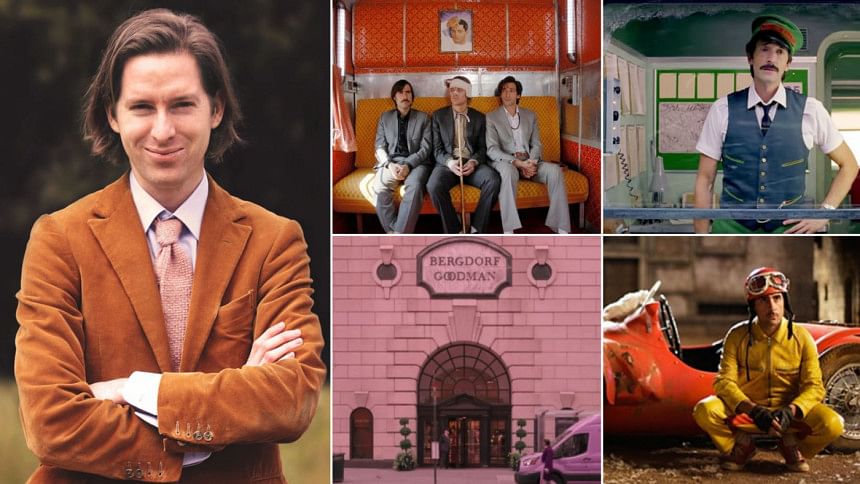Compact art: Exploring Wes Anderson’s short films

Wes Anderson unquestionably has one of the most distinctive voices in contemporary cinema, and it turns out that he also has one in the advertising industry. Some of the best commercials of the twenty-first century are the result of the director being courted by businesses like American Express, Prada, Hyundai, and AT&T throughout the years to combine their products with his signature style.
Commercial directors frequently employ the same language they would use to discuss short films when talking about their projects. But it looks like Anderson creates a short film every time he makes a commercial. He occasionally creates both. For example, after directing a 44-second commercial for Prada, he continued with the fashion house's support to direct the seven-minute Castello Cavalcanti. However, Anderson has also utilized short films in support of his long ones since he created the thirteen-minute black-and-white short Bottle Rocket, which would later serve as his debut feature. Moonrise Kingdom is introduced entertainingly by Cousin Ben's Troop Screening, and Hotel Chevalier must be seen before The Darjeeling Limited. Both serve to remind us that, despite the quality of the work a brand may produce through him, Wes Anderson promotes nothing quite as charmingly as he promotes Wes Anderson.
The 2013 commercial Castello Cavalcanti, written and directed by Wes Anderson in collaboration with Prada, quickly went viral and served as the ideal showcase for a director who may have the most distinctive visual style in contemporary film.
In the film, Jason Schwartzman plays a struggling race car driver who gets hilariously rear-ended and ends up in the fictitious Italian town of Castello Cavalcanti. The eight-minute short, however, was shot at Cinecittà in Rome, Italy.
The film is an homage to Federico Fellini, which is a real delight for cinephiles. Despite its little running time, it is crammed with allusions to the immense body of work by the director. Anderson has long acknowledged the influence of Fellini in his work, particularly in the cartoonish background characters. In Rushmore or Roma, a young boy wearing an absurdly enormous fedora would be quiet at home in Castello Cavalcanti.
In terms of short films, Anderson's 2007 feature The Darjeeling Limited debuted alongside his short film, "Hotel Chevalier," at the Venice Film Festival. The 13-minute film explains the history of Jack, a character played by Jason Schwartzman, and is set before The Darjeeling Limited's events. The movie "Hotel Chevalier" is excellent on its own. Fans of Anderson should not miss "Hotel Chevalier," which is both a solitary memory that explores time passing and a prologue story that enhances the subsequent picture.
There hasn't been much written about Anderson's short films, which include Bottle Rocket (1994), Hotel Chevalier (2007), Cousin Ben Troop Screening with Jason Schwartzman (2012), and Moonrise Kingdom Animated Short (2012), which is consistent with critics' continual indifference in the short-film subgenre. Anderson's constant engagement with the short-film form reflects his perspective on the category. He distinguishes himself from other directors by choosing to release his feature films alongside essential shorts.
Since his short films have a different approach to narrative and pacing than his feature films, they help us better understand Anderson's philosophy. Following Raskin's standards, Hotel Chevalier, along with Gare du Nord (1964) by Jean Rouch, Montparnasse et Levallois (1965) by Jean-Luc Godard, Faubourg Saint-Denis (2006) by Tom Tykwer, and Coffee and Cigarettes by Jim Jarmusch all belong in the pantheon of outstanding short films (1986).
His desire to tell stories rather than simply exhibit them has been clear throughout his career. All ten of Anderson's films are completely bizarre, and each one has a unique narrative style that represents a director who doesn't think of a movie as a movie at all, but rather as a novel that unfolds on screen.

 For all latest news, follow The Daily Star's Google News channel.
For all latest news, follow The Daily Star's Google News channel. 










Comments